Welcome to an in-depth exploration of SQL test questions geared towards junior roles. In this guide, we will walk through practical examples, breaking down the thought processes and SQL queries needed to tackle typical interview challenges. Whether you’re preparing for a junior SQL role or brushing up on your SQL skills, this blog will provide valuable insights.
Understanding the Structure of the Test
When approaching an SQL test, it’s crucial to understand the structure and time constraints. In this example, you typically have 20 minutes to answer six questions, giving you about three minutes per question. Knowing the layout will help you manage your time effectively.
Setting Up Your Environment
Before diving into the questions, ensure you have the necessary tools. If you haven’t installed SQL Server Management Studio (SSMS), refer to resources that guide you through the installation process. Additionally, having a full SQL tutorial at your disposal can be beneficial.
Question Breakdown
Let’s tackle the questions one by one, providing queries and explanations for each.
Question 1: Show all makes, models, and retail prices ordered by retail price descending
The first question requires selecting data from our main table, focusing on the make, model, and retail price. The SQL query looks like this:
SELECT make, model, retail_price FROM cars_table ORDER BY retail_price DESC;
By executing this query, you retrieve a list of car makes and models, sorted by their retail price from highest to lowest.
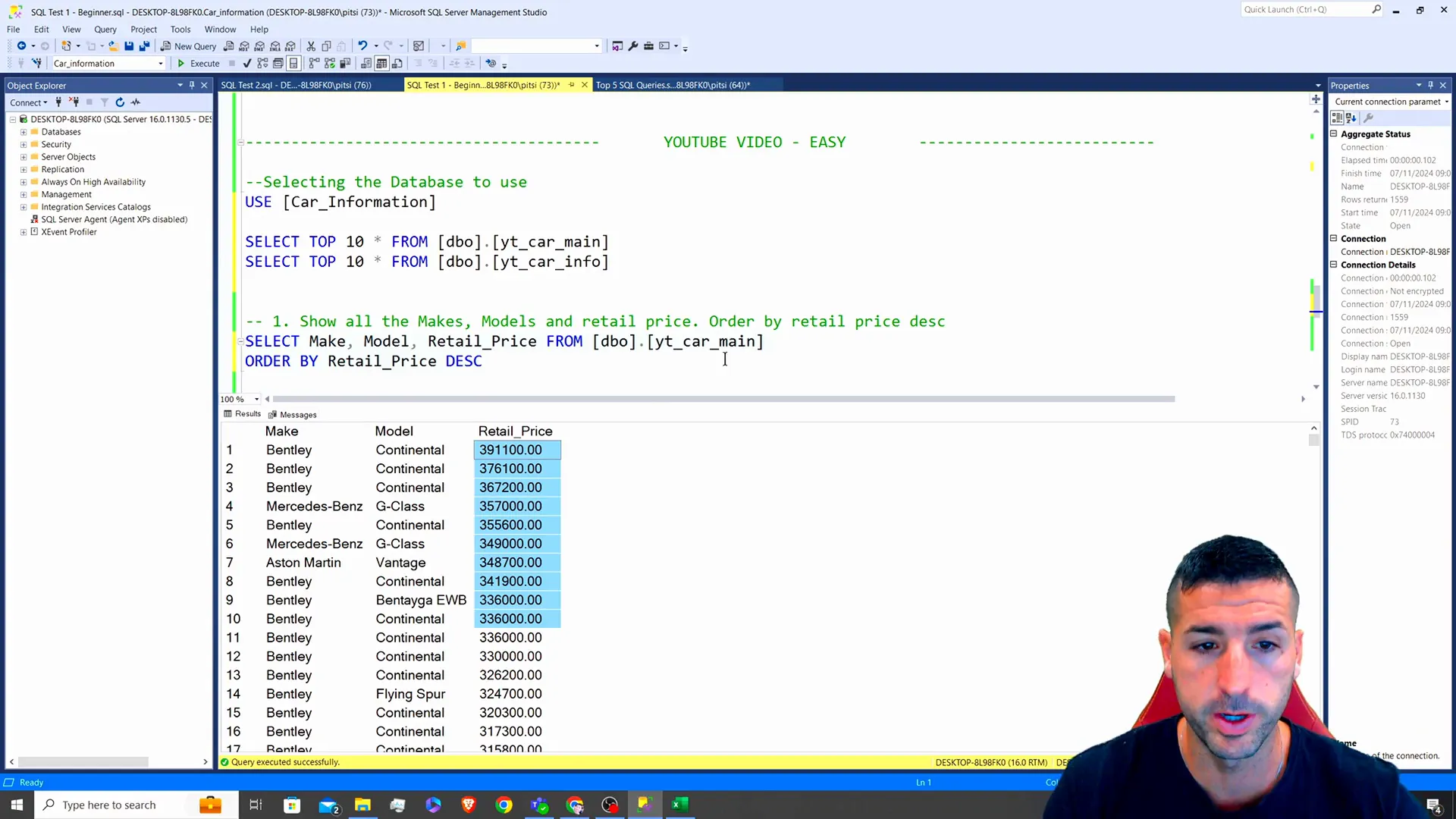
Question 2: Show all the Audi models for 2024
This question focuses on filtering data for a specific make and year. The following SQL query achieves this:
SELECT * FROM cars_table WHERE make = 'Audi' AND year = 2024;
Be mindful of data types; ensure that ‘year’ is treated as a number for accurate filtering.
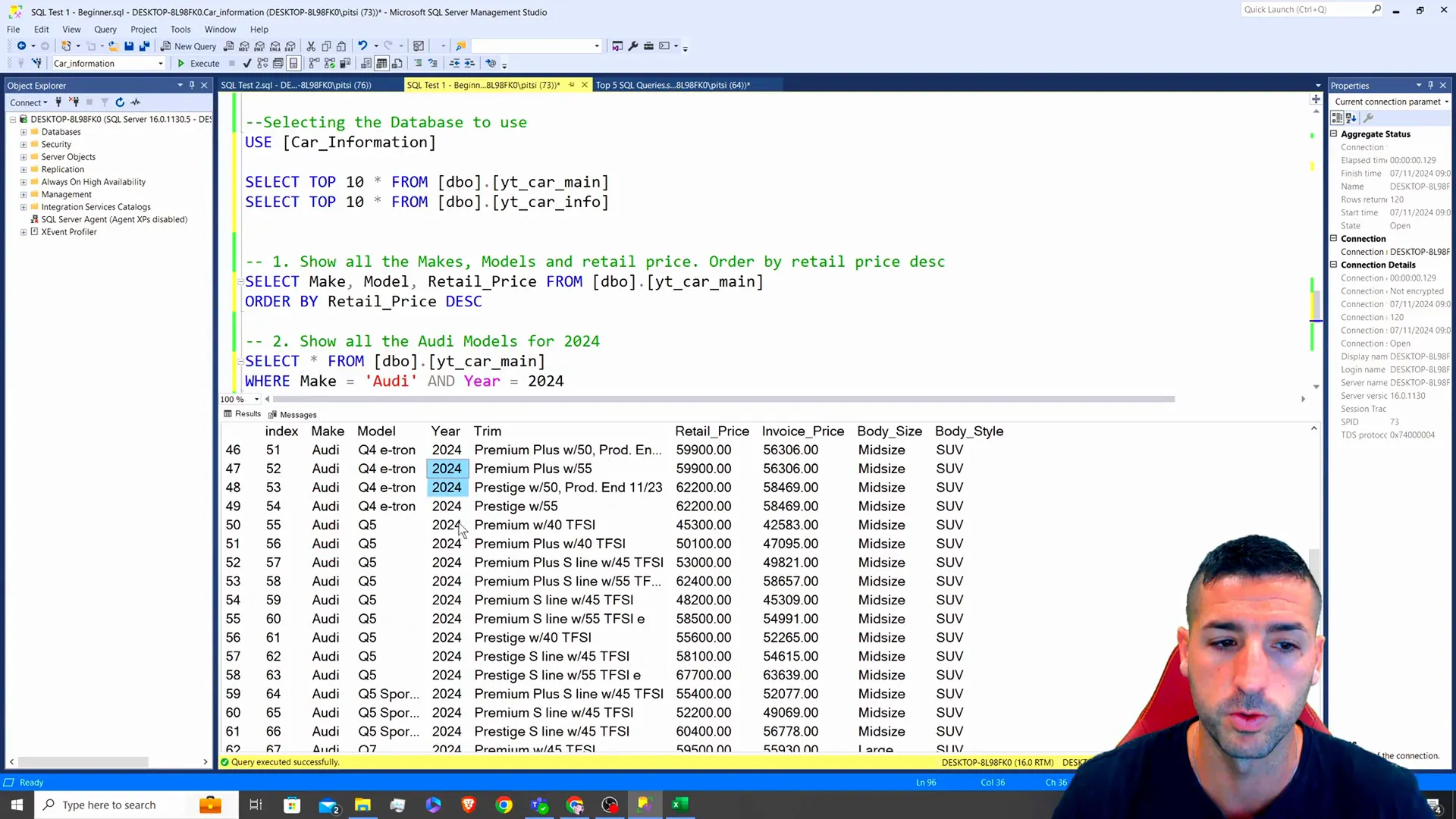
Question 3: Show the total retail price for Mercedes cars per model, ordered by retail price
This question asks for aggregation of data. The SQL query would look like this:
SELECT model, SUM(retail_price) AS total_retail_price FROM cars_table WHERE make = 'Mercedes-Benz' GROUP BY model ORDER BY total_retail_price DESC;
Here, we sum the retail prices for each Mercedes model and order the results by the total retail price.
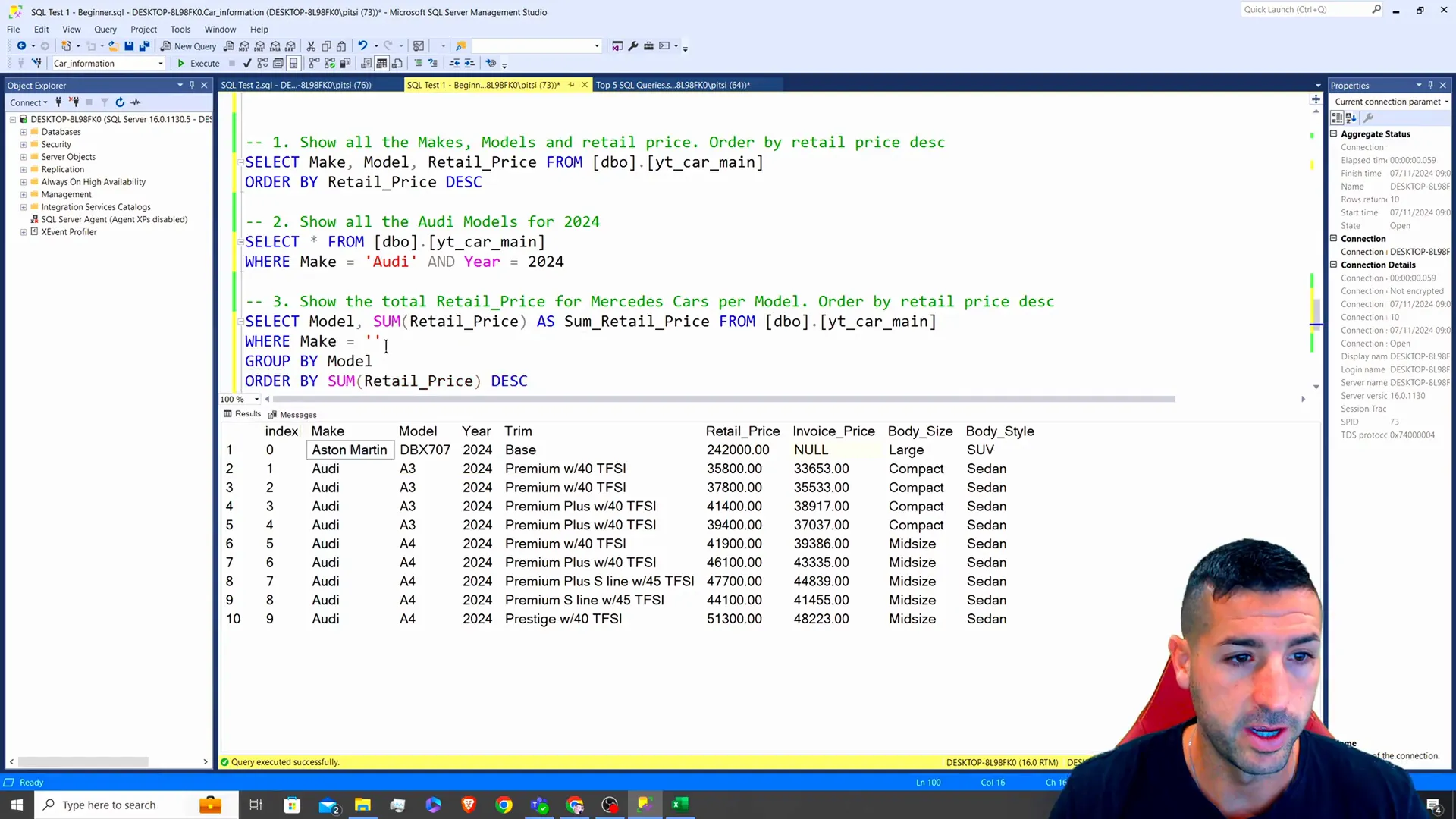
Question 4: Show total retail price, average, minimum, and maximum invoice price by make and body size where body style equals SUV
This complex query requires multiple aggregations. Here’s how to structure it:
SELECT make, body_style,
SUM(retail_price) AS total_retail_price,
AVG(invoice_price) AS average_invoice_price,
MIN(invoice_price) AS min_invoice_price,
MAX(invoice_price) AS max_invoice_price
FROM cars_table
WHERE body_style = 'SUV'
GROUP BY make, body_style
ORDER BY average_invoice_price;
This query aggregates various statistics for SUVs and orders them by the average invoice price.
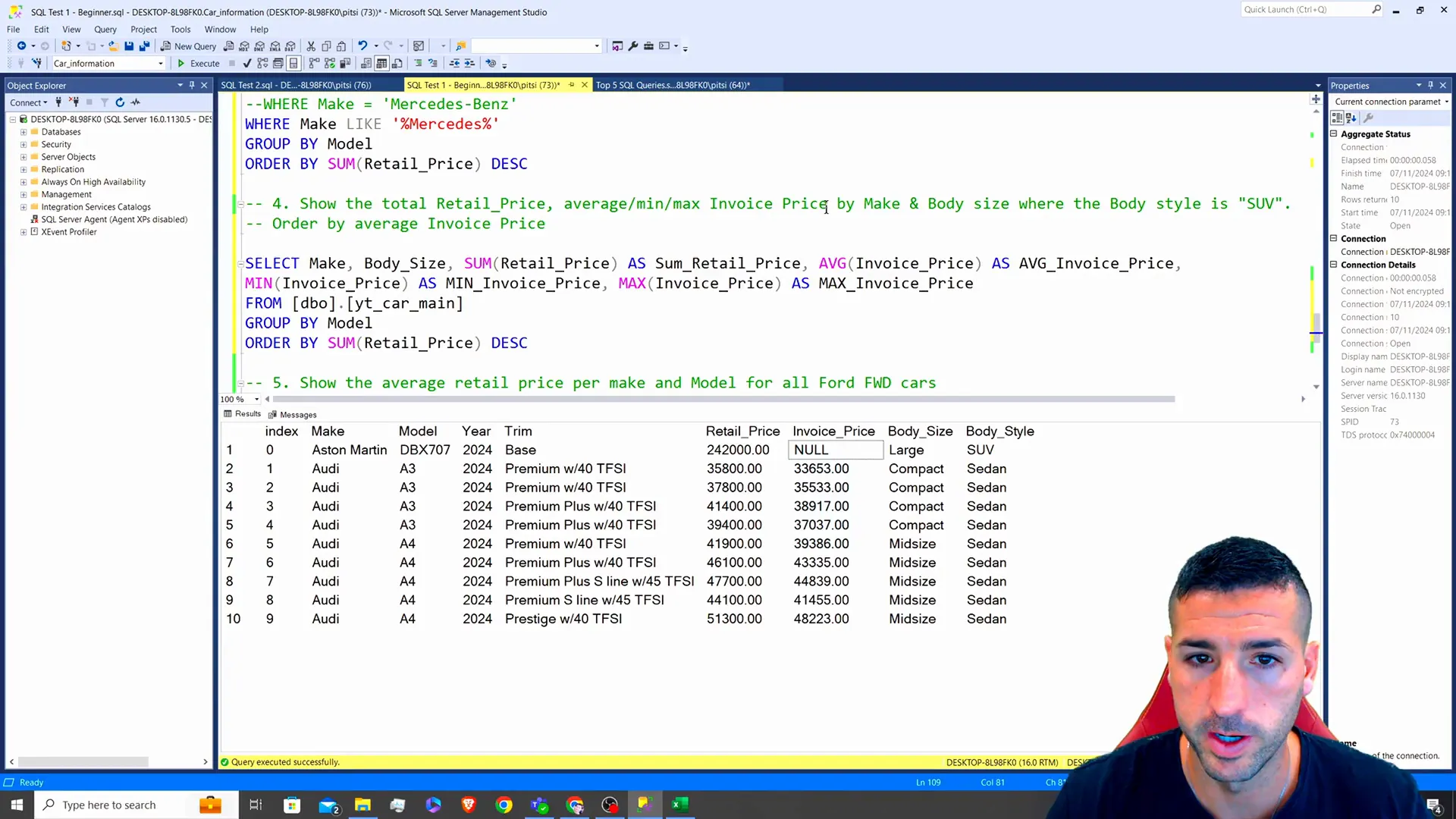
Question 5: Show the average retail price per make and model for all four-wheel drive cars
For this question, you need to filter by drivetrain. The query is as follows:
SELECT make, model, AVG(retail_price) AS average_retail_price FROM cars_table WHERE drivetrain = '4WD' GROUP BY make, model;
This will give you the average retail price for each make and model of four-wheel drive cars.
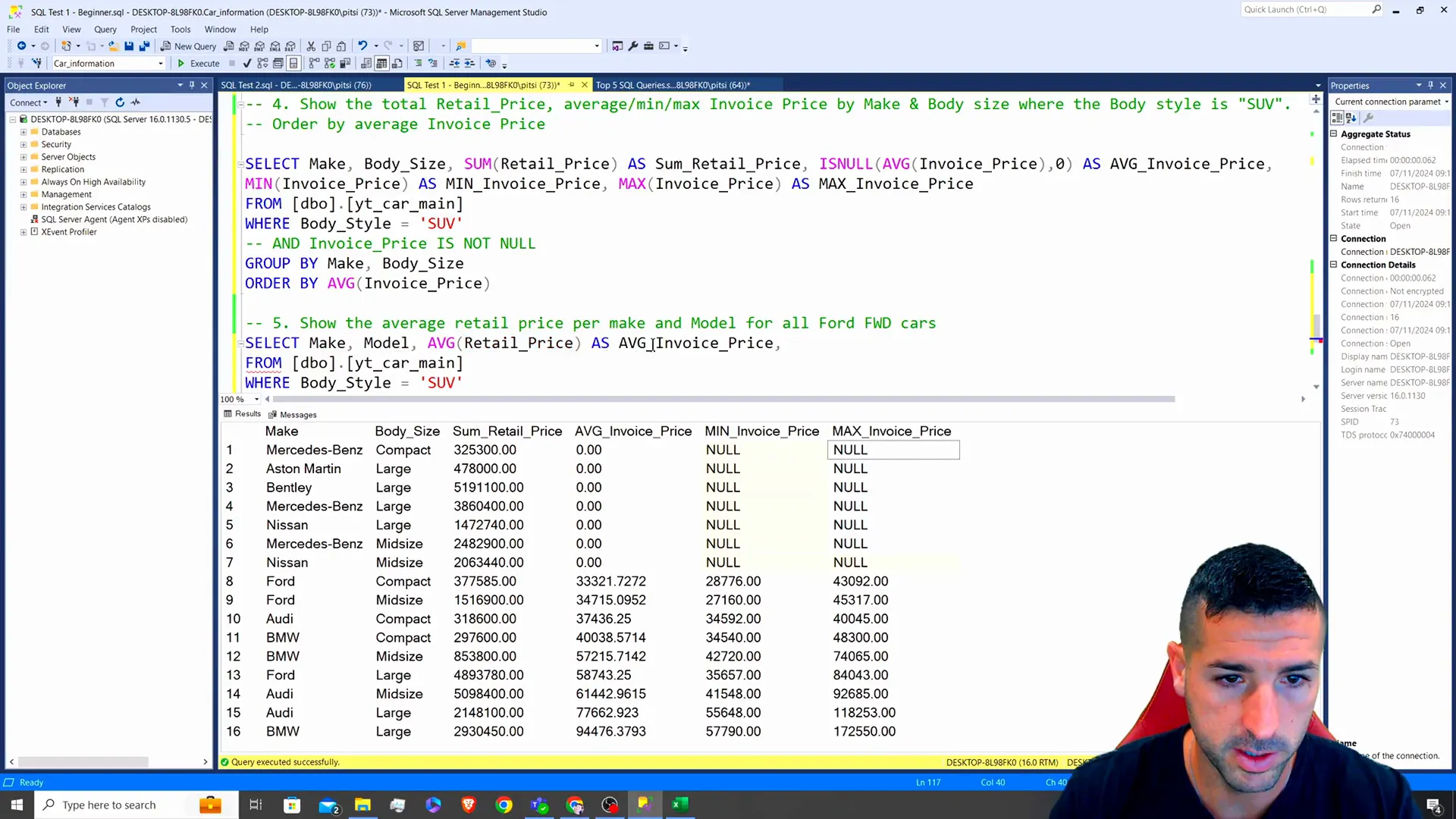
Question 6: Show all cars with a retail price between 30k and 60k, compact SUVs, and four cylinders
This question combines multiple conditions. The SQL query would be structured like this:
SELECT * FROM cars_table WHERE retail_price BETWEEN 30000 AND 60000 AND body_style = 'SUV' AND cylinders = 4;
This query retrieves all compact SUVs that meet the specified price range and cylinder count.
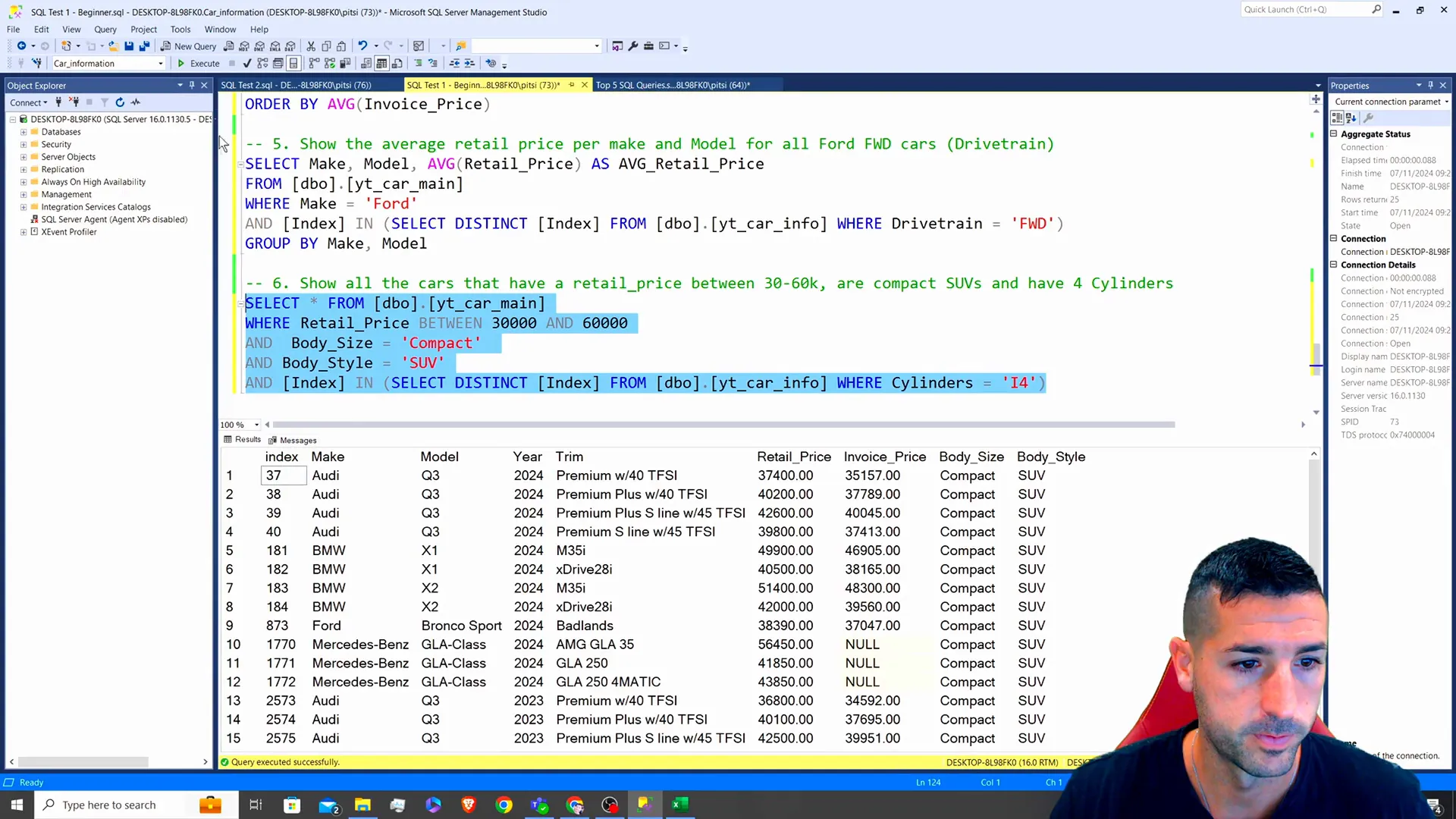
Final Thoughts
Completing these questions successfully showcases your understanding of SQL fundamentals and your ability to work with data. Each question tests different skills, from basic selection to complex aggregations and filtering.
If you found this guide helpful, consider liking and subscribing for more SQL tutorials and interview preparation tips. Also, feel free to download the raw data and practice your skills on GitHub at SQL-Tutorials-/SQL_Videos_2024/SQL_Test_Junior on GitHub.
Good luck with your SQL journey, and remember: practice makes perfect!
